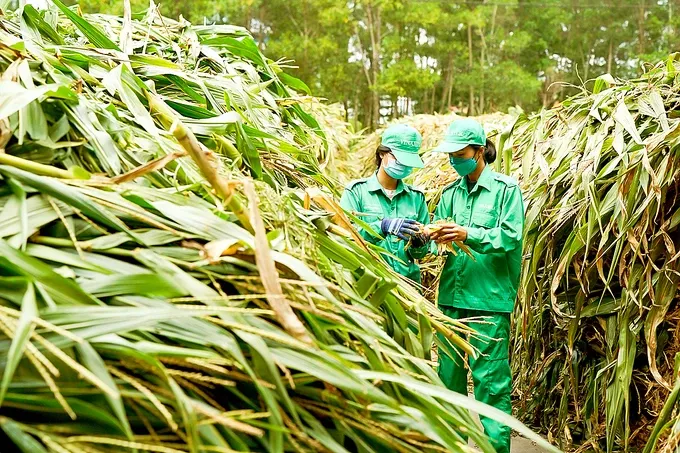
Despite the absence of standardized criteria, recent years have witnessed the infiltration of green finance into various industries. For instance, Vietnam has collaborated with the International Finance Corporation (IFC) to launch comprehensive guidebooks for issuing green bonds, social bonds, and sustainability bonds, as well as greenhouse gas emission reporting protocols.
With support from the IFC and other international financial institutions, banks in Vietnam have mobilized significant capital for green projects. For instance, HD Bank is set to issue US$100 million in green bonds this year, focusing on solar energy, agriculture, and waste-to-energy projects.
Meanwhile, BIDV has emerged as a market leader in green credit. As of March 31, 2024, BIDV's green credit outstanding reached nearly VND74 trillion ($2.9 billion), accounting for approximately 4.2 percent of its total outstanding loans and 12 percent of the total green credit in the economy.
Beyond expanding green credit, BIDV was the first bank to successfully issue VND 2.5 trillion ($98.6 million) in green bonds aligned with the International Capital Market Association (ICMA) Green Bond Principles. Additionally, BIDV supports corporate capital mobilization through advisory services and arranging capital for green bond issuance.
Businesses themselves are also striving to turn green. Around 28 percent of domestic enterprises have shown increased interest in Environmental, Social, and Governance (ESG) reporting via establishing clear ESG risk metrics for progress monitoring.
Proposals have been made to encourage green credit growth for a sustainable green economy, including the introduction of green criteria, preferential treatment for green projects such as increased credit limits, refinancing options, or exempting green project funding from short-term capital ratios for medium and long-term lending.
The State Bank of Vietnam's (SBV) Department of Credit for Economic Sectors acknowledges that green credit results remain limited due to banking sector constraints. Specifically, Vietnam lacks comprehensive regulations on green classification aligned with economic sectors and international practices, hindering credit institutions' ability to assess loans or appropriately allocate capital for green-classified projects.
Furthermore, capital requirements for green economic development are substantial, while support from financial markets and carbon credit markets remains underdeveloped or unimplemented.
To address these issues, the SBV has issued Decision No.1663/2024, amending Decision No.1604/2018 on the development of green banking in Vietnam. The SBV will develop and issue guidelines on green credit and environmental risk management in credit activities, providing a foundation for credit institutions to implement green banking effectively.
Deputy Director Nguyen Duc Lenh of the SBV's HCMC branch highlighted the significance of the amendments, stating that they impose requirements on regulatory agencies. Specifically, based on regulations issued by the government and relevant ministries, the SBV will develop and issue guidance on green credit and environmental risk management in credit activities.
Regarding green criteria, the 2020 Environmental Protection Law introduced provisions for green credit and bonds, detailed in Decree 08/2022 by the Government, specifying roadmaps and incentive mechanisms for green credit allocation and bond issuance.
The Ministry of Natural Resources and Environment (MONRE) is tasked with developing and submitting a draft green classification to the Prime Minister, specifying environmental criteria for green credit projects and green bond issuance projects. However, MONRE is still in the process of developing this draft classification.
Chairman Tran Du Lich of the Advisory Board for the implementation of Resolution 98 in HCMC commented that the city has issued Resolution 09, providing interest rate support for priority socio-economic development investment projects financed by the city's state financial investment company.
While this represents progress in supporting credit for businesses transitioning to high technology, digital transformation, and green transformation with specific criteria, it remains insufficient. A national legal framework and criteria are necessary to promote green credit comprehensively.
Moreover, although Resolution 98 authorized HCMC to pilot a carbon credit market under ministerial guidance, no such guidance has been issued to date.
























